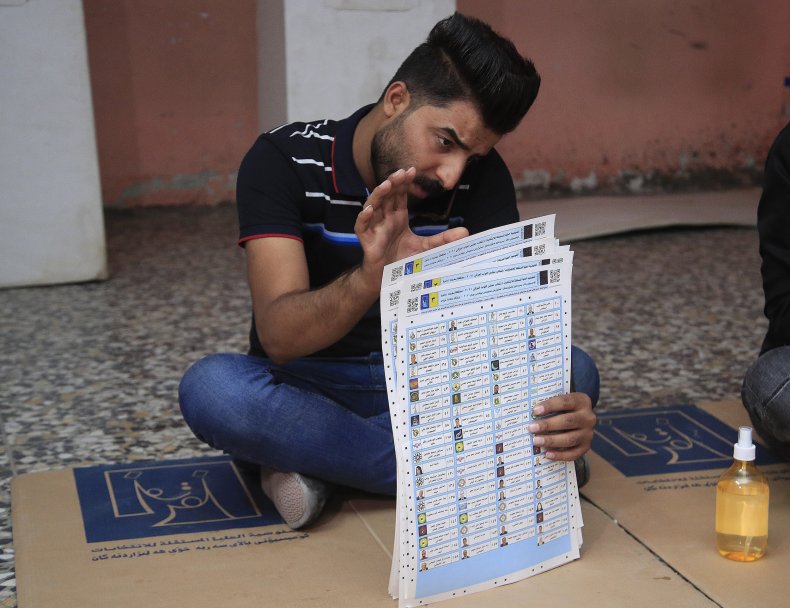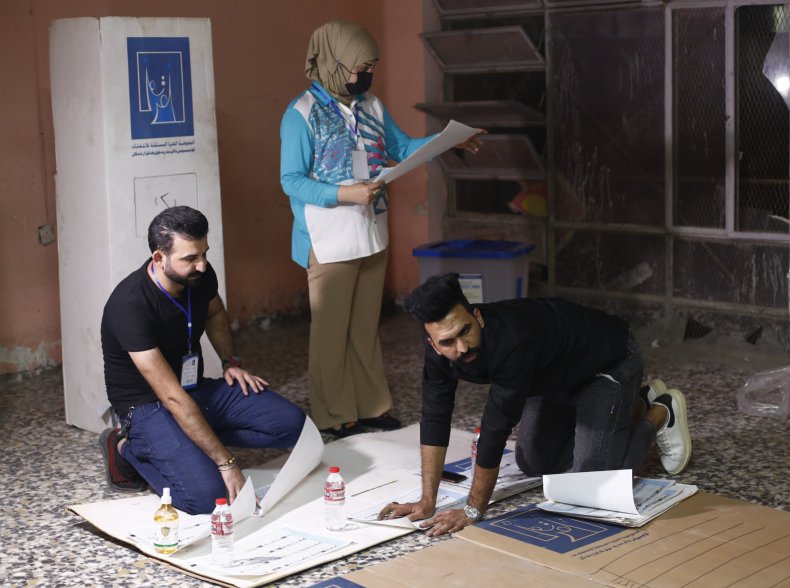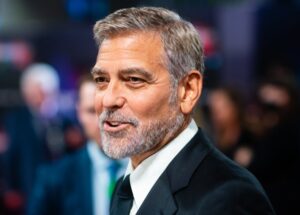Iraq saw record-low voter turnout numbers in its parliamentary election over the weekend, signaling the public’s continued distrust of the country’s government after the 2019 protests in which many were injured or killed by authorities, the Associated Press reported.
The Independent High Electoral Commission announced preliminary results Monday that indicated 41 percent of eligible voters went to cast their ballots at the polls Sunday, down from the previous record low of 44 percent in the 2018 elections.
In late 2019 and early 2020, tens of thousands of activists and demonstrators took to the streets in Baghdad and southern Iraq to call for broad reforms and new elections, AP reported. The country’s security forces combatted the protests with live ammunition and tear gas, killing more than 600 people and injuring thousands more within a few months.
The election was held months before it was originally scheduled to appease participants of a popular uprising led by the country’s youth in protest against corruption and mismanagement. However, many voters remained indifferent to Sunday’s election and a boycott led by many activists who took part in the 2019 protests contributed to the new turnout low, according to AP.
For more reporting from the Associated Press, see below.
Hadi Mizban/AP Photo
Although authorities gave in and called the early elections, the death toll and the heavy-handed crackdown—as well as a string of targeted assassinations—prompted many protesters to later call for a boycott of the vote.
More definitive results were expected later Monday, with groups drawn from Iraq’s majority Shiite Muslim factions expected to come out on top as has been the case since 2003. Influential Shiite cleric Moqtada al-Sadr, who was the major winner in the 2018 elections, was expected to sweep up more seats. Still, none of the parties were expected to win a clear majority, and negotiations to choose a prime minister tasked with forming a government were expected to drag on for weeks or even months.
The Fatah Alliance, led by paramilitary leader Hadi al-Ameri, was expected to come in second. The alliance is comprised of parties and affiliated with the Popular Mobilization Forces, an umbrella group of mostly pro-Iran Shiite militias that rose to prominence during the war against the Sunni extremist Islamic State group. It includes some of the most hardline Iran-backed factions, such as the Asaib Ahl al-Haq militia.
Al-Sadr, a black-turbaned nationalist leader, is also close to Iran, but publicly rejects its political influence.
The election was the sixth held since the fall of Saddam Hussein after the U.S.-led invasion of Iraq in 2003. Many were skeptical that independent candidates from the protest movement stood a chance against well-entrenched parties and politicians, many of them backed by powerful armed militias.
There was a marked reluctance among young Iraqis—the country’s largest demographic —to get out and vote. Many expressed views that the system is immune to reforms and that the election would only bring back the same faces and parties responsible for the corruption and mismanagement that has plagued Iraq for decades. The problems have left the country with crumbling infrastructure, growing poverty and rising unemployment rates.
Under Iraq’s laws, the party that wins the most seats gets to choose the country’s next prime minister, but it’s unlikely any of the competing coalitions can secure a clear majority. That will require a lengthy process involving backroom negotiations to select a consensus prime minister and agree on a new coalition government.
Iraq’s current prime minister, Mustafa al-Kadhimi, has played a key role as a mediator in the region’s crises, particularly between regional rivals Iran and Saudi Arabia. Many in the region and beyond will be watching to see if he will secure a second term.
The new parliament will also elect Iraq’s next president.

Hadi Mizban/AP Photo



















